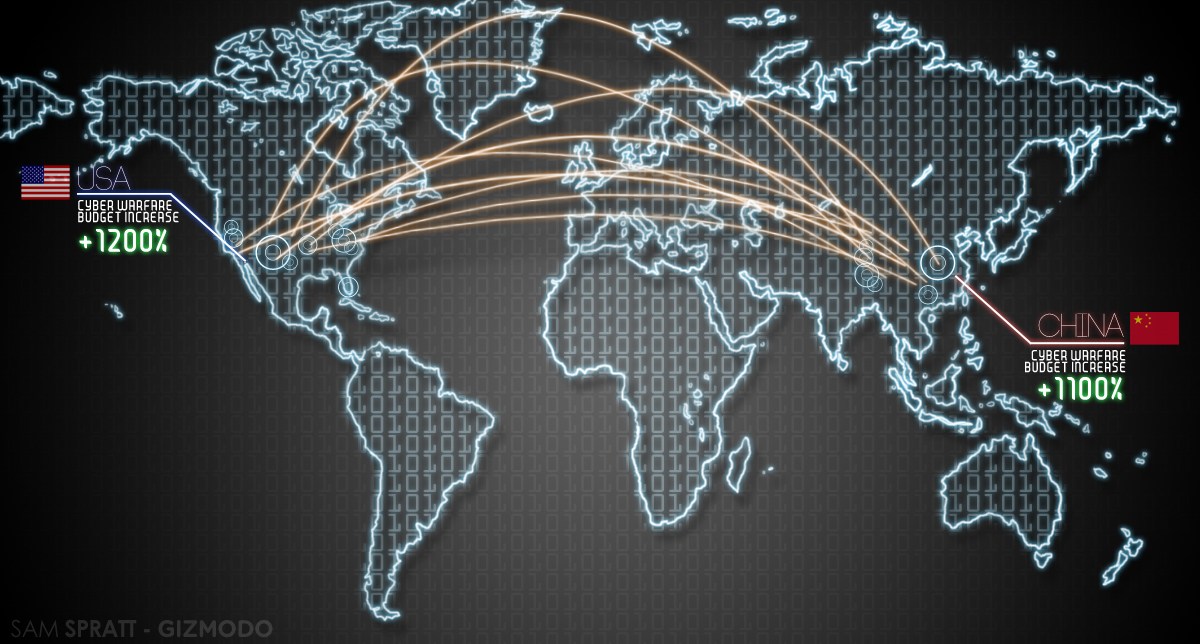The US Administration has opened up a no-holds barred offensive against China and Russia as the two dared to challenge American supremacy in cyber space. It has now decided to aggressively project its power and `name and shame’ the nation-states allegedly involved in influencing elections and other sabotage activities in the US and allied countries.
President Donald Trump himself set the tone to this aggressive approach when he accused China, at his recent UN address, of launching an `information and propaganda warfare’ aimed at tarnishing his image and thus affect his and his party’s poll prospects in the upcoming elections. “China is trying to meddle in our elections…we’re not going to let that happen, just as we’re not going to let that happen with Russia, “the maverick demagogue thundered.”
The charges were elaborated by Vice President Mike Pence in his acerbic speech at the Hudson Institute in Washington, DC last week. He said that China has initiated an unprecedented effort to influence American public opinion, the 2018 elections, and the environment leading into the 2020 presidential elections. “To put it bluntly, China wants a different American President,” he told the audience.
“Beijing has mobilized covert actors, front groups, and propaganda outlets to shift Americans’ perception of Chinese policy,” he said and went on to quote a senior intelligence official: “what the Russians are doing pales in comparison to what China is doing across this country.”
“China is targeting the US state and local governments and officials to exploit any divisions between federal and local levels on policy. It’s using wedge issues, like trade tariffs, to advance Beijing’s political influence.” He referred to a sensitive document circulated by China in June, which laid out its strategy: “strike accurately and carefully, splitting apart different groups” in the United States of America.
The Chinese tariffs “specifically targeted industries and states that would play an important role in the 2018 election,” he said. “By one estimate, more than 80 percent of US counties targeted by China voted for President Trump and I in 2016; now China wants to turn these voters against our administration.”
In a further blow to China, Bloomberg business weekly published last week an investigative report which exposed a major supply-chain hack that compromised Amazon and Apple amongst 30 American companies, and thus gave Beijing access to sensitive networks. A unit of the Peoples’ Liberation Army (PLA) reportedly inserted a tiny malicious chip in mother boards, the manufacture of which was sub-contracted to Chinese companies by the California-based Supermicro.
Servers, equipped with such mother boards, were found in Department of Defense’s data centers, the CIA’s drone operations and onboard networks of Navy warships. The chips allowed the attackers to create a stealth doorway into any network that included the altered machines.
Beijing is believed to have gained tremendous access to international systems as 75 percent of the world’s mobile phones and 90 percent of PCs are of Chinese-origin.
Both Apple and Amazon denied the reports, but six current and former senior national security officials confirmed the discovery of the chips and investigations that followed. One of the officials stated, “China’s goal was long-term access to high-value corporate secrets and sensitive government networks.”
Faced with such onslaught, Trump administration has rescinded the Obama-era presidential directive and issued a new national Cyber strategy last month. It provides for a more aggressive approach to deploy offensive operations against nation-states and criminal groups in the digital domain. It envisions a robust role for the Pentagon and US Cyber command in protecting elections, defending US critical infrastructure and coordinating and sharing cyber threat data with the private sector.
The Department of Defense (DOD) rolled out its own cyber strategy in line with the national cyber strategy. Announced last month, it decreed that `deterrence is no longer the prominent pillar of its cyber defense strategy and declared that the US has moved past preparations for defense and will now confront the adversary on its home turf.
Former senior intelligence officials from the CIA and NSA are unanimous on the need for a more robust deterrence to counter nation-states. The threat of counter-attacks in the digital domain has not been effective against these adversaries as it is very difficult, if not impossible, to attribute the source of attack, they aver.
Michael Morell, former Acting Director of CIA, Michele Flourney, former Under Secretary of Defense Policy and Rick Ledgett, former Deputy Director of NSA attribute the Chinese cyber aggression to the US failure to deter Russia from interfering in American elections. “As the US did not deter Russia from interfering in American elections, China is now encouraged to follow suit in a much more clinical way”, these intelligence Tsars told a panel discussion at Georgia Tech last week. They said that deterrence only works when a cyber-attack is responded to by a coordinated strategy that includes not only a counter-attack in cyber space but also other non-digital means such as economic sanctions, diplomatic, military and propaganda means.
In such a coordinated approach with allies Britain and the Netherlands, the US indicted last week seven agents of Russia’s military intelligence, GRU, for plots against American and European targets. The indictments include charges of money laundering, using virtual currencies like bitcoin, wire fraud and identify theft. Dutch security services said they had thwarted a Russian cyber-attack on the global chemical weapons watchdog, the OPCW.
British Foreign Secretary Jeremy Hunt declared that GRU was almost certainly behind the BadRabbit and World Anti-Doping Agency attacks last year, the hack of the Democratic National Committee (DNC) in 2016 and the theft of emails from a UK-based TV station in 2015. Suggesting photographic evidence of the involvement of GRU agents in the chemical attack against former Russian secret agents in Salisbury, the British government decided to go on the offensive and broaden the case against the Russian military intelligence.
Conclusion
While the Chinese and Russian governments have vehemently denied the allegations, it is a fact beyond doubt that Beijing marched much ahead of Moscow in perfecting its technical prowess to access world systems and manipulate them in a way that benefits its foreign, military and domestic agenda.
Neither the US nor the UK is an angel. After the exposures made by estranged US defense contractor Edward Snowden on the extent of covert cyber operations of the NSA and CIA, the pretensions of Washington DC to take a high moral pedestal is not tenable, anyhow.
The truth is that the US and its allies on one side and China and Russia on the other are battling for supremacy and power projection. It is difficult to predict the outcome of this `Cold War – 2’, but it does not portend well. There is thus an urgent need to nudge these powers to reach an international agreement setting the rules of the game, on the lines of nuclear or space accords. Countries like India will do well to take the lead in their own interest.


